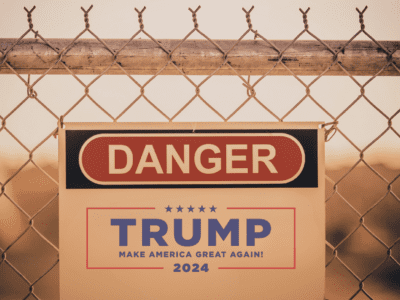HR 9: The First Climate Bill to Pass the House In a Decade
What you need to know about the bill.
Last Thursday, for the first time in a decade, the House of Representatives passed a climate change bill. HR 9, the Climate Action Now Act, passed on a vote of 231-190.
The heart of HR 9 is section 3, which blocks the use of any federal funds to withdraw from the Paris Agreement. Section 4 of the bill gives the President 120 days to “develop and submit to the appropriate congressional committees and make available to the public a plan for the United States to meet its nationally determined contribution under the Paris Agreement.” The U.S. had pledged to reduce its total greenhouse gas emissions by 26-28% below the 2005 level by 2025. As of 2017, emissions were 13% below 2005 levels, though they returned to 2014 levels last year due to increases from the transportation and the industrial sectors.
No Democrat voted against HR 9. This is a contrast with the situation in 2009, when the House passed a major climate change bill with 40 Democrats voting no. Notably, the Republican opponents largely avoided questioning the reality of climate change, and several expressed concerns about the issue. Their counterargument was economic, as the NY Times reports:
“Representative Jodey Arrington, Republican of Texas, called the participation of the United States “a gift to our enemies.” Representative Steve Scalise of Louisiana, the second-ranking Republican in the House, called the accord a “disaster of an agreement” that would send American jobs to China and India, which he incorrectly described as being ‘exempt’ from the deal.” Scalise needs a new set of talking points. One of the great achievements of the Paris Agreement was getting India and China to commit to climate action, in contrast to the Kyoto Protocol. Given the way California has thrived while cutting emissions, the idea that climate action would tank the economy also lacks a certain credibility.
Three Republicans — Elise Stefanik of New York, Brian Fitzpatrick of Pennsylvania and Vern Buchanan of Florida — voted for the bill, and four others did not vote, including one staunch advocate of climate action who was recovering from knee replacement. The three who voted for the bill are an interesting group who don’t have a lot in common. Stefanik represents a district in upstate New York bordering Vermont. The district has been in Republican hands for over a century, except for a brief interlude before Stefanik won office. Fitzpatrick represents an urban district in southeastern Pennsylvania. He’s a maverick who is the only Republican ever to win an award from the gun control group founded by Gabby Giffords. Buchanan, a wealthy owner of car dealerships, represents the Sarasota area in Florida, and in contrast to Fitzpatrick has an A- rating from the NRA. His vote for HR 9 presumably represents the growing salience of the climate issue in Florida, just as Stefanik and Fitzpatrick are reflecting the solidification of support for climate action in the Norrtheast.
Democrats know very well that the bill has no chance of reaching the Senate floor, and the Senate majority leader, Mitch McConnell, has already declared it dead on arrival. But passing the bill performed several functions for House Democrats. It provided the opportunity to show a unified front on the climate issue. It put House Republicans on record as supporting Trump, which may be helpful in some districts. At the same time, it gave Democrats, including some newly elected members, a pulpit for speaking out on the issue. Nancy Pelosi was careful to call out their contribution to the climate debate in her remarks on the bill. According to Roll Call, which reports on Congress,
“The party turned to freshman Rep. Joe Cunningham to give a floor speech before the final vote, for example. Cunningham flipped a longtime Republican district on the South Carolina coast last fall by emphasizing his opposition to offshore drilling.
For freshman Democrats from competitive seats, the lead-up to the vote was an opportunity to deliver impassioned remarks and try to paint the GOP as out of step with Americans on the issue. New Jersey Rep. Tom Malinowski listed major corporations that want the U.S. to remain in the Paris pact — and used the moment to try to undermine the Republican attack on Democrats for being socialists.”
Pelosi herself spoke about science, jobs, and national security in connection with climate change. But she also emphasized the moral (and even religious) duty to curb emissions:
“If you believe, as do I and so many Evangelical communities, that this planet is God’s creation and we have a moral responsibility to be good stewards of it, then you would be sure to be a good steward and sign up for Climate Action Now.
“But even if you don’t share that religious belief, we all know that we have a moral responsibility to the next generation to pass this planet on in a better way than we found it.”
Amen to that.







Reader Comments